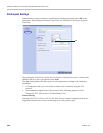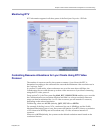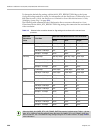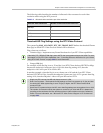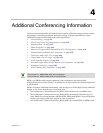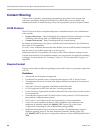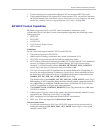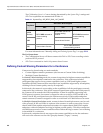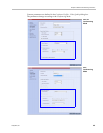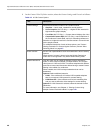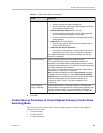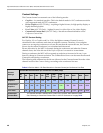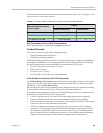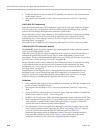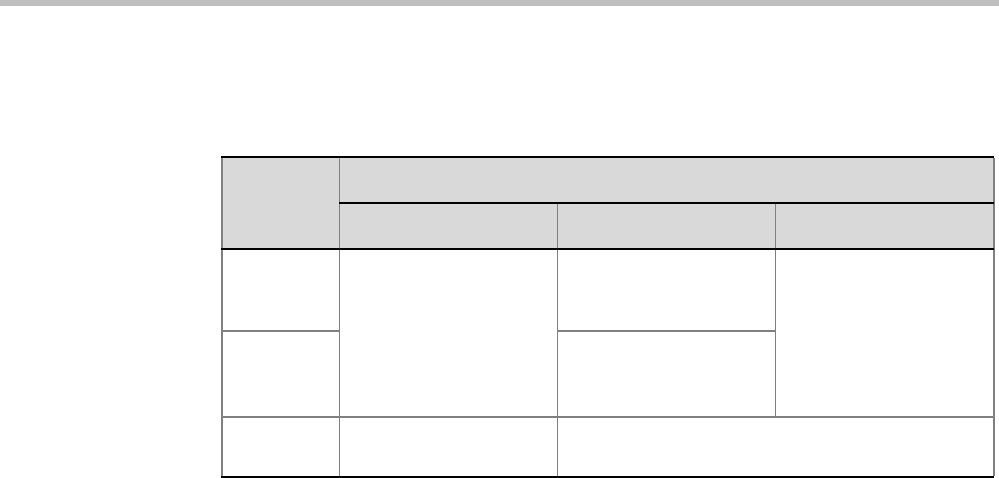
Polycom® RealPresence Collaboration Server (RMX) 1500/2000/4000 Administrator’s Guide
4-4 Polycom, Inc.
The Collaboration Server’ s Content sharing determined by the System Flag’s settings and
SIP Client capabilities are summarized in Table 4-1.
For more information see "Manually Adding and Deleting System Flags” on page 22-19.
Dial-in Connections:
• The Collaboration Server will share content with Dial-in SIP Clients according to their
preferred BFCP protocol.
• SIP Clients connected as Audio Only cannot share Content.
Defining Content Sharing Parameters for a Conference
Content can be shared using two main methods:
• Content Highest common parameters (also known as Content Video Switching)
• Multiple Content Resolutions
In Content Video Switching mode, the content is negotiated to highest common capabilities
supported by the endpoints connected to the conference. If the conference includes
participants that support lower content capabilities (such as H.263) and higher content
capabilities (H.264), content will be sent at the lower capabilities supported by all endpoints,
resulting in lower content quality seen by all endpoints.
In this mode, the content is set according to the capabilities of all the participants currently
connected to the conference. If the all the connected participant support the H.264 protocol,
the Content will be started with H.264 capabilities. If then an endpoint supporting only
H.263 protocol connects, the content is stopped in order to switch to H.263 and has to be
resent. If the H.263 participant leaves the conference and only H.264 capable endpoints
remain connected, content is stopped in order to switch back to H.264 and has to be resent.
In Multiple Content Resolutions mode, content is shared in multiple streams, one for each
video protocol: H.263 and H.264. A separate video resource is used to process the Content
shared with H.264-capable endpoints and another for content shared with H.263-capable
endpoints, with each endpoint receiving its highest possible quality. This allows endpoints
with different protocols to connect and disconnect without having to restart Content sharing
in the middle of a conference.
In this mode, endpoints that do not support the content capabilities set for the conference
will receive the content over the video (people) channel (“Legacy” content).
Table 4-1 System Flag - SIP_BFCP_DIAL_OUT_MODE
Flag Value
SIP Client: BFCP Support
UDP TCP UDP and TCP
AUTO
(Default)
BFCP/UDP selected as
Content sharing
protocol.
BFCP/TCP selected as
Content sharing
protocol.
BFCP/UDP selected as
Content sharing
protocol.
UDP Cannot share Content.
TCP Cannot share Content.
BFCP/TCP selected as
Content sharing protocol.



